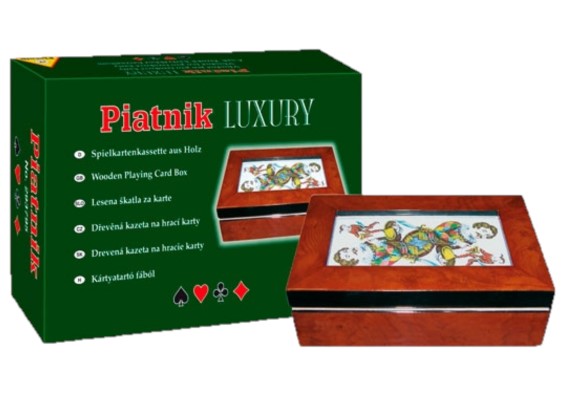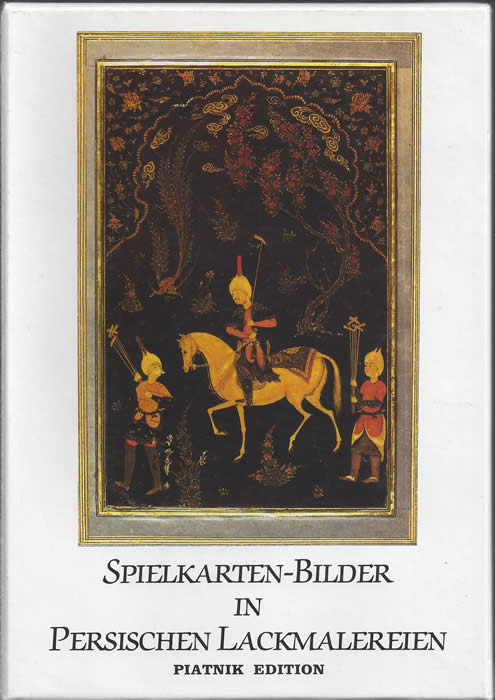


| Thank you for visiting the tarock.net card store! |
If you think you might want it, add it to your cart.
Before you complete your purchase, you can sort through your cart and remove cards if you change your mind.
French Tarot / Tarot Nouveau / Animal Tarock / Tiroler Tarock (78 Card decks)
Piatnik Classic Tarock Cards (54 Card decks)
|
|
|
|
|
Piatnik Edition Tarock Cards (54 Card decks) 63x113mm
|
|
|
54 cards, 63x113mm Tarock mit Wiener Typen 19.99
|

Luxury playing card box for 54 card decks above except Kaffeehaus & Damen.
Wooden box with glass inlay.
Cards not included.
$24.99
Regional Playing Cards
Naipes Cups, Coins, Clubs, Swords 40 Cards
|
Charta Bellica Renaissance Playing Cards 52 Cards, 2 Jokers, Rules
Out of Stock |
Jass 36 Cards
|
Piquet 36 Cards
Out of Stock
|
Marias Jednohlavy 32 Cards
|
|
Club Skat Economy 33 Cards
|
Schafkopf Tarock 36 Cards (Bayerisches)
|
Doppelkopf 48 Cards + 2 Joker (Franzosisches)
|
Skat 32 Cards Large Suits (Franzosisches)
|
Magyar Kartya 32 Cards (Plastic)
|
Magyar Kartya 32 Cards
|
Magyar Kartya 32 Cards
|
32 cards, 63x113mm Kavehaz Kartja $19.99
|
40 cards 51x91mm
|
40 cards 54x100mm
|
40 cards 52x84mm
|
Marias Dvojhlavy 33 Cards
|
Riesenjasskarten 36 Cards in plastic case 86x153mm (xlarge)
|
Doppeldeutsche 33 Cards
|
36 cards in plastic case 82x130mm (xlarge) Riesenspielkarten
|
|
Kriegsfursorgekarten 32 Cards
|
Tiroler Spielkarten 36 Cards |
Deutsche Karten aus RuSland 36 Cards |
Wilhelm Tell Wilmos 32 Cards |
Out of Stock |
$14.99
|
$13.99
|
Piatnik Edition Tarock Gift Sets
(boxes are approximately 23x16x3cm in size)
Tiroler 54 Cards
|
Flotner'sche Kartenspiel 47 Cards
|
Der Machtigen 35 Cards
|

Persischen Lackmalereien 8 Cards
|
Von Lebensgluck und Narretey 2x36 Cards
|
Trappola 36 Cards
|
Jvgundstiltarock 54 Cards
|
Arnold Schoenberg 52 Cards
|
We protect your privacy at www.tarock.net
Ordering cards is secure and easy. We strive to ship your cards the next business day.
Online payments at tarock.net, America's #1 source for tarock decks, are processed by PayPal, America's #1online secure payment service.
Thank you for visiting tarock.net!
shipping information | shipping costs | International shipping
privacy | policy | security | contact us
Card Store
Special note: many of the card images used on tarock.net, and card display images used in the tarock.net store are courtesy of Ferd. Piatnik & Sohne, copyright PIATNIK, Austria.
Thank you!